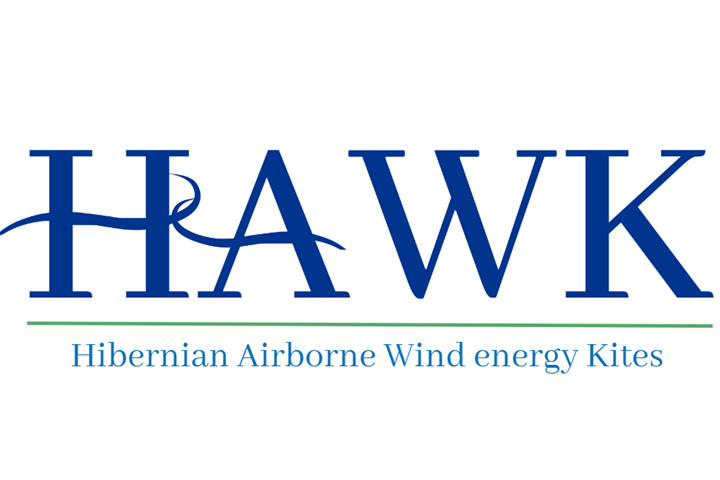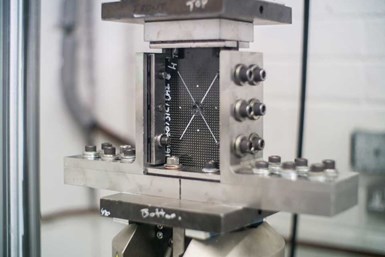Composites Testing Laboratory launches wind energy project HAWK
Over the next two years, the Irish SME is working in conjunction with the University of Galway to model and test novel materials, such as composites, for airborne wind energy applications.

Photo Credit, all images: Composites Testing Laboratory (CTL)
Composites Testing Laboratory (CTL, Galway, Ireland) is an accredited testing laboratory for advanced composite materials. In partnership with the University of Galway, the SME has launched the new project, HAWK — Hibernian Airborne Wind Energy Kites — funded by the Sustainable Energy Authority of Ireland (SEAI) and featuring contributions from project collaborators Zero Nexus (Toronto, Ont., U.S.), TU Delft (Delft, Netherlands) and Airborne Wind Europe (Brussels, Belgium). HAWK is partly being funded by the SEAI (€376K) and will be completed over the next 2 years.
Airborne wind energy (AWE), associated with Airborne Wind Europe, uses kites or drones that are tethered to the ground to generate electricity. There is a diverse set of challenges facing the adoption of AWE technology, including product safety/regulation, technology feasibility and developing effective supply chains.
HAWK is expected to accelerate development and deployment in the Irish marketplace of competitive energy-related products, processes and systems by introducing an open-source database effectively giving OEMs a head-start in composite airframe development. This activity will strengthen Ireland’s reputation in the Airborne Wind Energy space and will encourage increased international collaboration.
In recent years, Europe has emerged as a hub for innovation in AWE, with numerous government-funded research projects such as MegaAWE in Northwest Europe, BORNE in Belgium and NAWEP in Norway, all supporting fundamental research and technology development. However, the development of AWE systems to date has been focused on small-scale performance demonstrators, resulting in limited data availability to estimate costs.
Therefore, the HAWK project aims to reduce risk for AWE OEMs by:
- Developing a techno-economic analysis model supported by data for candidate materials suited to AWE.
- Determining key challenges and barriers for AWE system developers in predicting the capital and operating costs of composite airframe structures.
- Analyzing the main wing component for long-term performance using the material test data.
The HAWK project aligns with the Irish government’s Research Priority Areas 2018-2023, as it falls under two research themes: Energy, Climate Action and Sustainability; and Manufacturing and Materials. The development of AWE systems aids in the decarbonization of energy systems and the promotion of sustainable living.
For this project, Zero Nexus will provide expert support and guidance on material selection activities, setup and use of the open-source technical cost modeling software, and certification requirements for aircraft structures development programs. TU Delft will offer access to its open-source AWE reference system models, provide guidance on the use of the MegaAWE suite of system analysis tools, contribute requirements for sustainable materials to the project, and review test results and reports. Airborne Wind Europe will provide the link between this project and the AWE industry and its suppliers.
Details of energy research projects can be viewed on the National Energy Research Database.
This project is being supported with financial contribution from Sustainable Energy Authority of Ireland under the SEAI Research, Development & Demonstration Funding Program 2022, Grant number 22/RDD/893.
Read more about other airborne wind-based innovations such as Kitepower’s fiberglass-intensive kite.
Related Content
-
Achieving composites innovation through collaboration
Stephen Heinz, vice president of R&I for Syensqo delivered an inspirational keynote at SAMPE 2024, highlighting the significant role of composite materials in emerging technologies and encouraging broader collaboration within the manufacturing community.
-
Collins Aerospace to lead COCOLIH2T project
Project for thermoplastic composite liquid hydrogen tanks aims for two demonstrators and TRL 4 by 2025.
-
Composites end markets: Batteries and fuel cells (2024)
As the number of battery and fuel cell electric vehicles (EVs) grows, so do the opportunities for composites in battery enclosures and components for fuel cells.
















